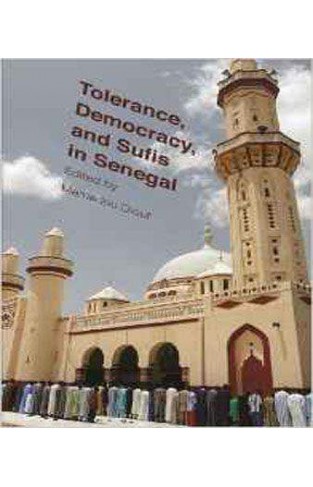Tolerance, Democracy, and Sufis in Senegal (Religion, Culture and Public Life)
By: Mamadou Diouf
-
Rs 5,997.00
- Rs 9,995.00
- 40%
You save Rs 3,998.00.
Due to constant currency fluctuation, prices are subject to change with or without notice.
This collection critically examines "tolerance," "secularism," and respect for religious "diversity" within a social and political system dominated by Sufi brotherhoods. Through a detailed analysis of Senegal's political economy, essays trace the genealogy and dynamic exchange among these concepts while investigating public spaces and political processes and their reciprocal engagement with the state, Sunni reformist and radical groups, and non-religious organizations. The anthology provides a rich and nuanced historical ethnography of the formation of Senegalese democracy, illuminating the complex trajectory of the Senegalese state and reflecting on similar postcolonial societies. Offering rare perspectives on the country's "successes" since liberation, the volume identifies the role of religion, gender, culture, ethnicity, globalization, politics, and migration in the reconfiguration of the state and society, and it makes an important contribution to democratization theory, Islamic studies, and African studies.
| Book | |
| What's in the Box? | 1 x Tolerance, Democracy, and Sufis in Senegal (Religion, Culture and Public Life) |
This collection critically examines "tolerance," "secularism," and respect for religious "diversity" within a social and political system dominated by Sufi brotherhoods. Through a detailed analysis of Senegal's political economy, essays trace the genealogy and dynamic exchange among these concepts while investigating public spaces and political processes and their reciprocal engagement with the state, Sunni reformist and radical groups, and non-religious organizations. The anthology provides a rich and nuanced historical ethnography of the formation of Senegalese democracy, illuminating the complex trajectory of the Senegalese state and reflecting on similar postcolonial societies. Offering rare perspectives on the country's "successes" since liberation, the volume identifies the role of religion, gender, culture, ethnicity, globalization, politics, and migration in the reconfiguration of the state and society, and it makes an important contribution to democratization theory, Islamic studies, and African studies.
Tolerance, Democracy, and Sufis in Senegal (Religion, Culture and Public Life)
By: Mamadou Diouf
Rs 5,997.00 Rs 9,995.00 Ex Tax :Rs 5,997.00
Zubin Mehta: A Musical Journey (An Authorized Biography)
By: VOID - Bakhtiar K. Dadabhoy
Rs 630.00 Rs 1,050.00 Ex Tax :Rs 630.00
The Origins of Political Order From Prehuman Times to the French RevolutioN
By: Francis Fukuyama
Rs 3,505.50 Rs 3,895.00 Ex Tax :Rs 3,505.50
Manning Up: How the Rise of Women Has Turned Men into Boys
By: Kay Hymowitz
Rs 796.00 Rs 995.00 Ex Tax :Rs 796.00
The Obama Syndrome: Surrender At Home War Abroad
By: Tariq Ali
Rs 1,165.50 Rs 1,295.00 Ex Tax :Rs 1,165.50
The Quest For Meaning: Developing A Philosophy Of Pluralism
By: Tariq Ramadan
Rs 1,255.50 Rs 1,395.00 Ex Tax :Rs 1,255.50
The Pakistan US Conundrum Jihadists The Military And The People The Struggle For Control
By: Yunas Samad
Rs 1,255.50 Rs 1,395.00 Ex Tax :Rs 1,255.50
An Enemy We Created: The Myth Of The Taliban Al Qaeda Merger In Afghanistan 19702010
By: Alex Strick van Linschoten
Rs 4,200.00 Rs 5,250.00 Ex Tax :Rs 4,200.00
WikiLeaks: Inside Julian Assanges War on Secrecy
By: David Leigh & Luke Harding
Rs 680.00 Rs 850.00 Ex Tax :Rs 680.00
No similar books from this author available at the moment.
No recently viewed books available at the moment.
Zubin Mehta: A Musical Journey (An Authorized Biography)
By: VOID - Bakhtiar K. Dadabhoy
Rs 630.00 Rs 1,050.00 Ex Tax :Rs 630.00
Tolerance, Democracy, and Sufis in Senegal (Religion, Culture and Public Life)
By: Mamadou Diouf
Rs 5,997.00 Rs 9,995.00 Ex Tax :Rs 5,997.00














-120x187.jpg?q6)





-120x187.jpg?q6)



-120x187.jpg?q6)



